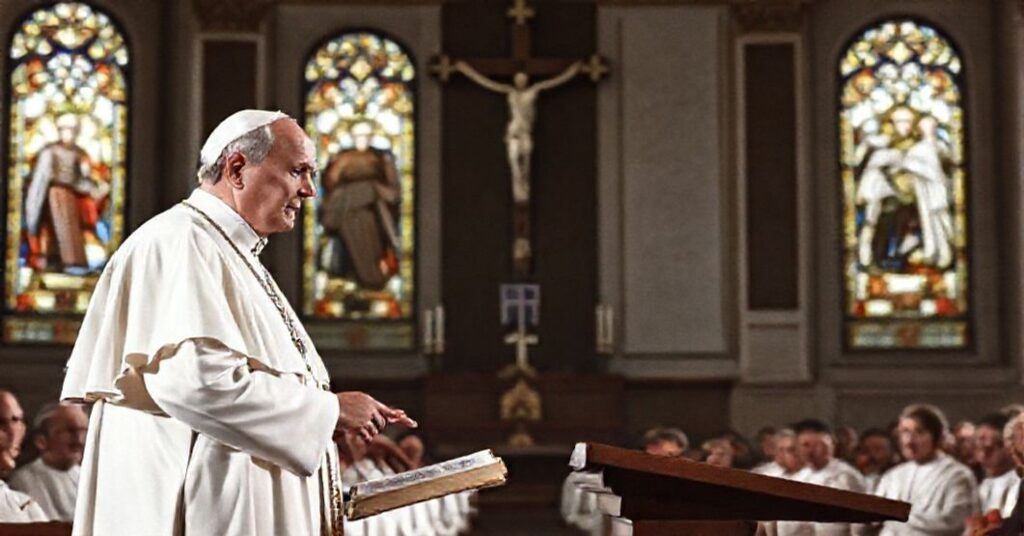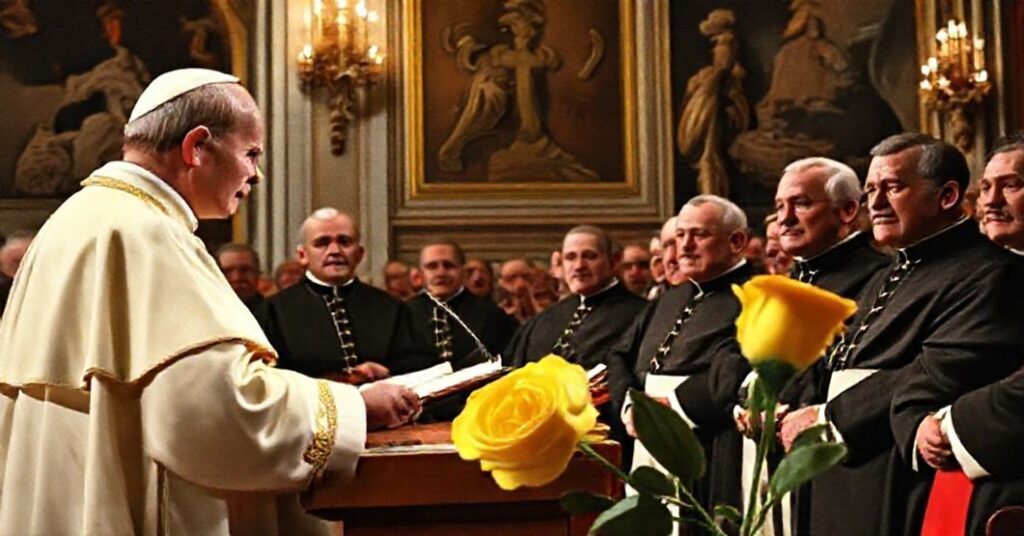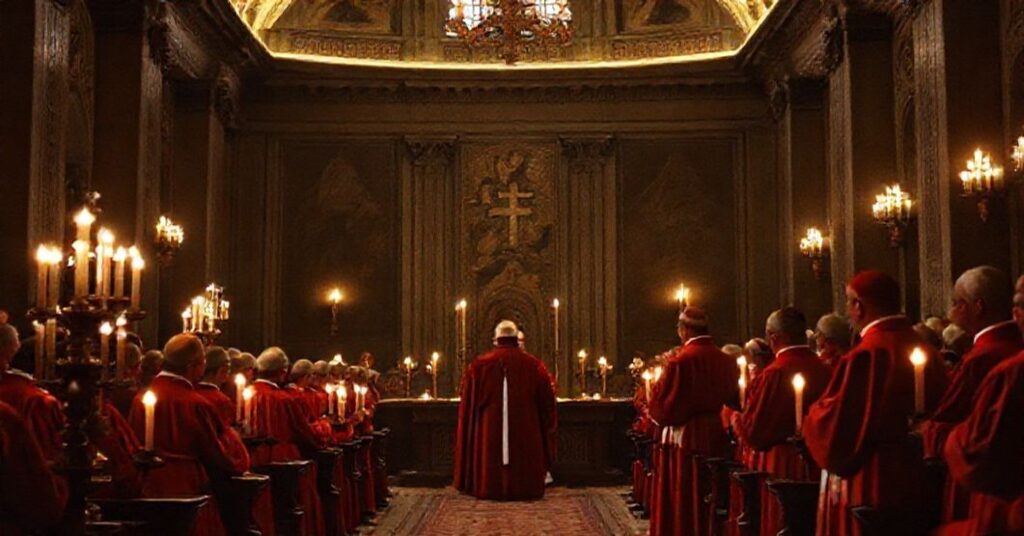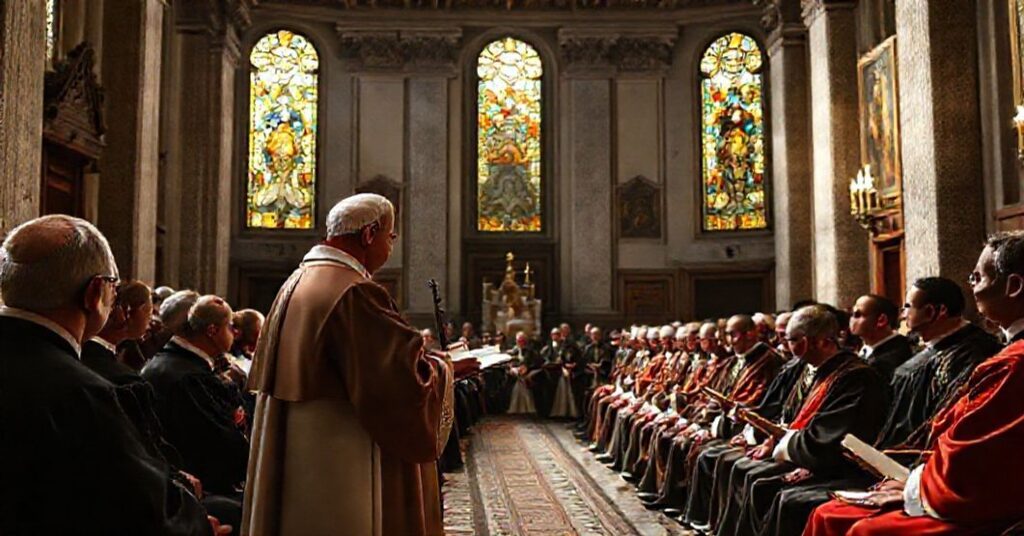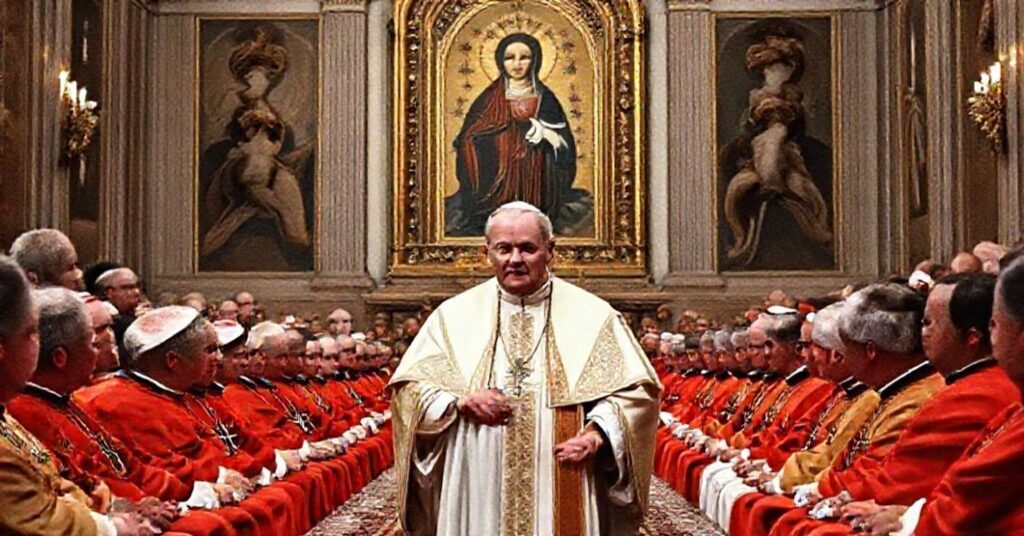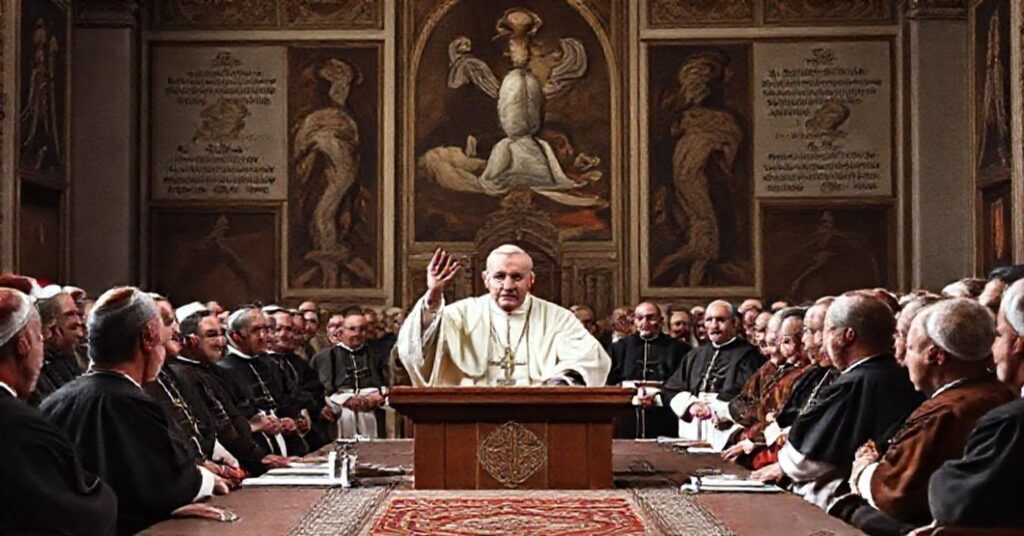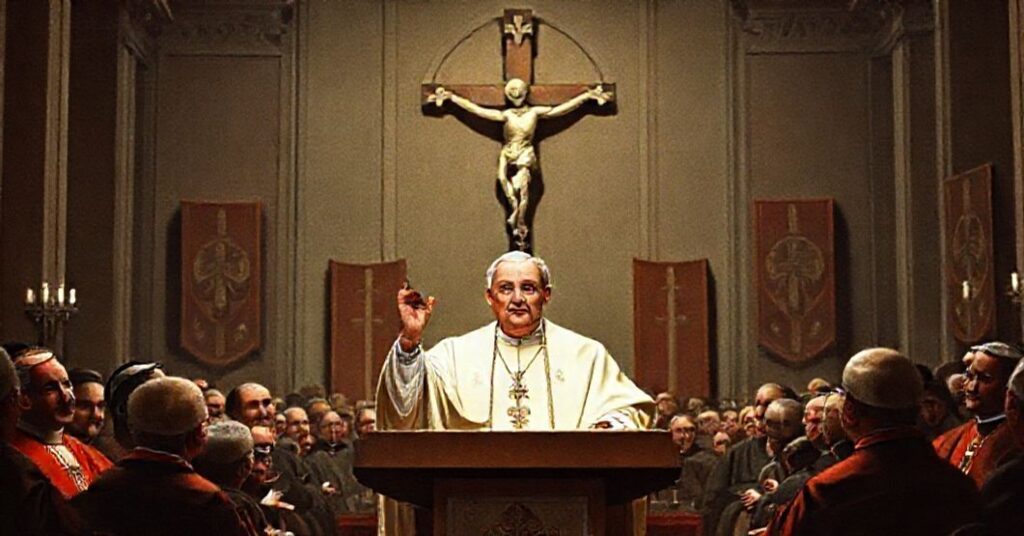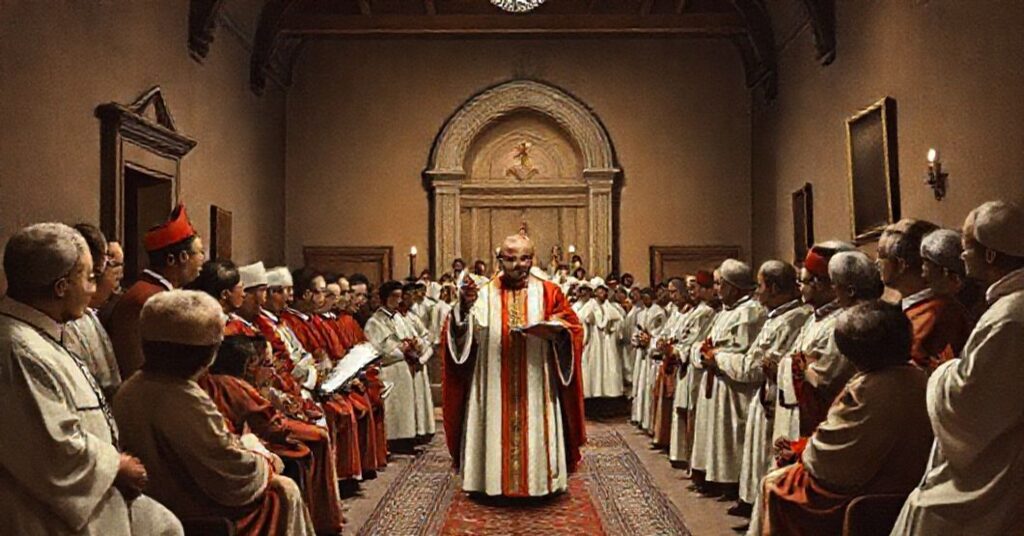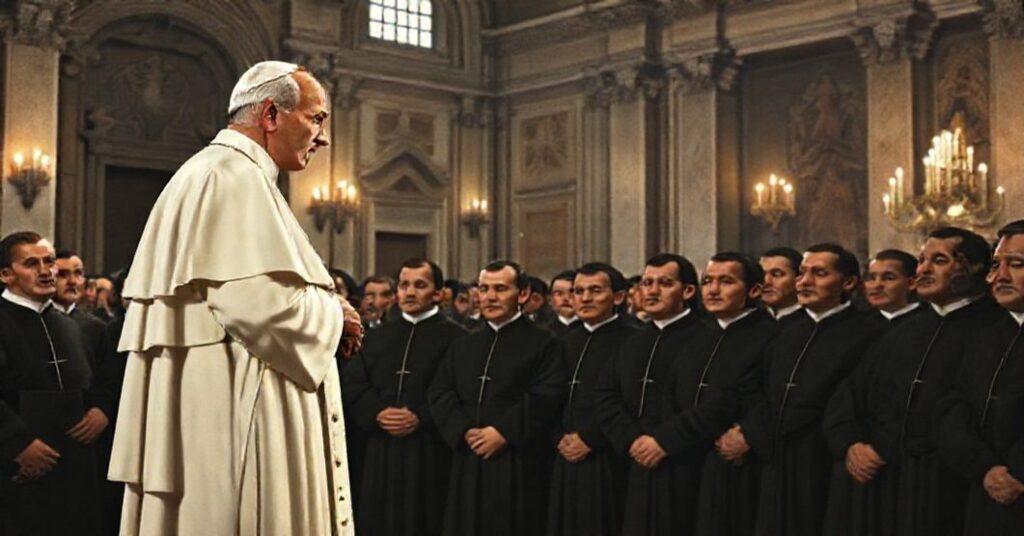Allocutio IOANNIS XXIII (1962.05.12)
In this address of 12 May 1962, John XXIII congratulates the members of the Central Preparatory Commission shortly before the opening of Vatican II, praises their labours and expresses serene confidence that the coming council – often styled by him a “new Pentecost” – will bring abundant fruits for the Church and even “for the whole human race,” while warning moderately against excessive trust in earthly institutions and stressing the need for orderly preparation, public information, and pastoral openness. This apparently pious and tranquil text is in fact a programmatic manifesto of the coming conciliar revolution, cloaking a radical reorientation of the Church’s mission under biblical phrases and sentimental optimism.

